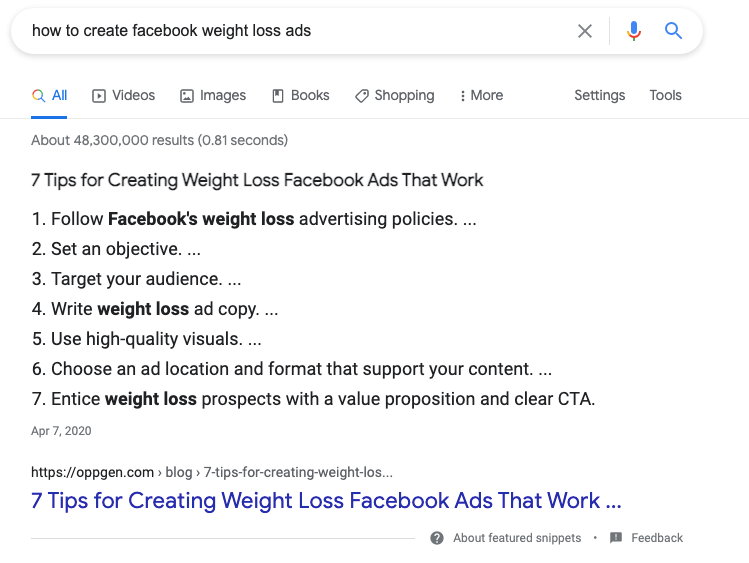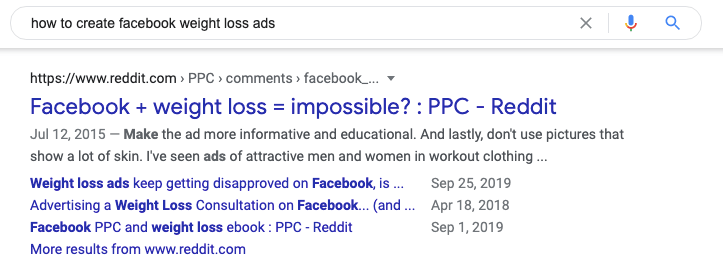2020 has been a difficult year for many businesses, mainly due to the global COVID-19 pandemic. COVID-19 responses generally included stay-at-home orders that often changed how companies operated.
It’s no wonder that Google decided to hold off on some of its 2020 search engine optimization (SEO) updates and push them back to later dates.
That said, many of the SEO trends for 2021 may look very similar to the trends of 2020. But that isn’t a bad thing. We can work with what we’ve already been doing and refine our SEO strategies for the better.
But in case you managed to miss 2020’s SEO trends, no worries — we’ll recap many of those that are still part of our top 10 SEO trends for 2021.
If you want more information about these upcoming SEO trends, contact us today.
1. Mobile-First Websites
Mobile-first websites are a must at this point. To understand what mobile-first means, we need to understand how search engines work.
Search engines use bots to “crawl” web pages and analyze pages’ content: text, video, images, audio, its overall layout, etc. From there, search engines will take the information the bots crawled and try to better understand what the page is about, where it further analyzes content. All this information is stored in an index, a massive database.
Search engines then determine a page’s SERPs (search engine results pages) ranking based on the quality of a page’s content, how quickly it loads, how relevant it is to certain searches, etc.
Mobile-first indexing refers to this whole process, except instead of a search engine going through this process on a desktop site, it will do it on the mobile version first and place more weight on the mobile experience than the desktop site in terms of ranking. Mobile-first indexing still takes other information into account, but if your website doesn’t work well on mobile, then it’s likely to rank lower, even with high-quality content.
Google initially announced it was going to start the shift to mobile-first in May 2019 and have it completed for all sites in September 2020, but due to COVID-19, Google has given an extension for webmasters to make the switch to mobile-first by the end of March 2021.
That said, if you don’t have a mobile-first site, you need to have one as soon as possible. OppGen can build you a sleek mobile-first website from the ground up. Contact us to learn more.
2. Long-Form Content
Longer blogs can improve your site’s SERPs ranking. SEM Rush’s State of Content Marketing Report found that blog posts with over 3,000 words get three times more traffic and four times the number of shares while also achieving 3.5 more backlinks than articles in average length (about 900 to 1,200 words).
But length isn’t everything — you need to make sure your content’s quality is top-notch, too.
3. EAT and YMYL
Google has given search engine marketers (SEM) and search engine optimization experts a few principles to guide their web pages to higher SERPs rankings.
One of these principles is called EAT (or E-A-T). EAT comes from a document Google’s human quality raters used to assess the quality of search results. Google publicly released this document in 2013 to help people better understand what Google looks for on web pages.
EAT is an acronym, with each letter standing for the following items:
Expertise
Expertise is about having a great deal of knowledge about a certain field. This means Google’s looking at who the content creator is and what their qualifications are. If you’re a doctor writing about chemotherapy, you’re more qualified than someone on reddit or a Facebook group discussing the use of essential oils to treat cancer.
But you don’t necessarily need to have the degree or background to rank high on SERPs. Everyday expertise matters, too. So if you’re looking for information on what it’s like to undergo chemotherapy, you might find a blog by someone who chronicled their experience with it.
Authoritativeness
Authoritativeness refers to your reputation among other experts in your field. This often comes from other trusted sources and experts linking back to your article. This can be other blog posts they’ve written, expert recommendations, articles, and high ratings.
Keep in mind that authority is relative. While some companies are authoritative in their respective fields, they may not be authoritative in others. For example, the Walt Disney Company would be considered an authoritative source in the entertainment industry, but it wouldn’t be an expert on how to grow vegetable gardens.
Trustworthiness
For EAT, trustworthiness is about legitimacy, accuracy, and transparency. Essentially, it boils down to creating content that people can trust.
You can boost your content’s trustworthiness by linking back to reliable, high-quality sources written by experts or articles that were posted on trustworthy websites. You can reach out to guest bloggers who are experts in their respective fields to see if they’d write a blog post for you or sit down for an interview.
Like authoritativeness, trustworthiness is also relative. Let’s return to that last example with the Walt Disney Company and gardening: While you can expect the Walt Disney Company to have accurate release dates for its upcoming slate of shows on Disney+, you can’t expect that from your local gardening center.
YMYL
Like EAT, YMYL is another Google SEO principle that came from the Google Search Quality Evaluation Guideline document. YMYL stands for “Your Money or Your Life” (or “Your Money, Your Life”), which refers to websites that fall under subjects that affect people’s lives, typically related to things like finance or healthcare. If your business offers any advice or information related to these topics, Google’s algorithms will likely pay closer attention to EAT when ranking your site.
Even if your business doesn’t necessarily have anything related to YMYL subjects, EAT is still important. It helps ensure that you’re creating high-quality content that helps people find what they’re looking for. High-quality content is always something to strive for, so keep EAT and YMYL in mind as you create content for your audiences.
4. Voice Search
As smart speakers like Alexa and Siri have become more common and more popular in households, the technology behind them has only gotten better.
It’s no wonder, then, that voice search will affect search queries. Consider the commercials featuring Alexa or Siri: People ask them questions in a conversational manner. That approach differs from the queries people search when typing on their phone or computer, which tend to be shorter and may contain abbreviations.
For example, a voice search query might be something like: “What is today’s temperature supposed to be?”
But a typed query would probably be phrased along the lines of: “temperature today.”
Keep voice search in mind as you go forward with SEO strategies, especially as more and more homes install smart speakers and voice assistants.
5. Snippets
Each individual search result on Google includes what is called a “snippet,” which includes the following details:
- The name of the page in blue
- The URL in green
- Body text that comes directly from the page’s text or meta descriptions
But not all snippets are created equal, and some snippets can bring in more traffic and help improve your SERPs ranking.
Featured Snippets
Featured snippets are kind of a shortcut on Google’s SERPs that include a block of information from a top-ranked website. They often include eye-catching images, reviews, product prices, and other relevant information and content that a specific page has to share. There can only be one featured snippet, and it’s considered to be ranked as 0 instead of ranked as 1.

A featured snippet.
Because they’re highly visual and stand out compared to other snippets, featured snippets also take up a large portion of traffic. If you manage to snag a featured snippet spot for a blog, you can expect to see more traffic headed to that specific page.
In order to have a featured snippet, you need, at the very least, to be in the top 5 organic search results. Structured data, or the code in your web page that informs search engines what your page is about, can also help make it easier for search engines to read your website and take the information that is most valuable on the page and have it be featured in the featured snippet. Having structured data is not required, but it can increase your chances of getting that coveted featured snippet spot!
Rich Snippets
To the untrained eye, rich snippets don’t look all that different than most snippets you’ll see on SERPs. But if you slow down and really take a close look at each individual snippet, you may realize that some snippets have more detailed information, such as ratings or cook times or calorie counts. Snippets with these extra details are rich snippets.

A rich snippet.
While they don’t look all that different from the average snippet, rich snippets do tend to perform better than their typical snippet counterparts.
6. Visual Content
Website Design
We’ve already discussed why mobile-first websites are pretty much a requirement at this point, but we also need to go into why sites need good designs and user experiences. 57% of internet users say they won’t recommend a business with a poorly designed mobile website. That’s nearly two-thirds of people who won’t do you any favors with word-of-mouth marketing, the most powerful kind of marketing.
You need to put in a good deal of thought when designing your mobile-first website. It must reflect your brand, and if there’s even a single message or image that doesn’t align with your business (or vice-versa), it will negatively affect prospects.
Keeping your website’s overall design simple, clean, and easy to navigate on all devices will do you and your business a lot of good.
Images
A Bright Local survey found 60% of consumers are more likely to consider local search results that have images and are 23% more likely to contact a business that showcases an image.
To stand out, you need high-quality images, but you also don’t want to have massive images that take up a lot of data. This can affect site speed and your SERPs ranking as a result. Sites like TinyPNG will compress images, making the file size smaller without a massive drop in quality.
Also, keep your website accessible to people with screen readers and visual disabilities by including alt text on all your images. Alt text should describe what’s going on in an image or what’s featured in an image. If you’re able to include relevant keywords in the alt text, that’s a nice bonus!
But the big thing with alt text is to focus on is accessibility. An accessible website is better for all users, which is something search engines pay attention to.
Videos
Video content is becoming more and more popular, particularly with younger generations (but don’t discount the fact that baby boomers use websites like YouTube regularly, too!).
When used correctly, video can be an incredibly useful form of content that can really contribute to your SEO strategy. Posts with videos attract 3 times more links than posts with just text.
SEO is very much about crafting high-quality content, and that includes the quality of video. To produce quality results, you’ll have to invest in high-quality video production. You don’t need to go out and hire the best studio to do all the work, but you do need to keep quality in mind.
Due to the extra investment, it’s really important to keep your audience and goals in mind, otherwise your money may not end up helping you get the results you want. That said, one of the best ways to attract more leads is to create educational videos that provide insight and information that’s useful to your target audience.
This could be a video featuring all of the ins and outs of a product you sell or showing a procedure or service you offer.
Your content doesn’t have to be funny or commercial-like. Stick to what you know and do it well.
7. Local Search Listings
If the pandemic lockdown continues into 2021 (and it’s likely that it may, with estimates of COVID-19 being less of a threat around November 2021), that’s a serious threat to small businesses. But small businesses do have something that big box stores and corporations don’t necessarily have: connections to a very specific, local location.
Creating a local SEO strategy, then, will be vital for the small businesses that struggled during 2020 and will either be playing catch-up or are trying to still stay afloat while in a lockdown.
Part of that local SEO strategy should include setting up a Google My Business listing, which is an invaluable resource that can put your business on the (Google) map. It makes it easy to respond and reply to reviews and curate your business’s digital presence.
Since Google My Business listings are placed on Google Maps, your business will be so much easier for people to find and/or contact. You can even post updates on your Google My Business listing.
Don’t stop at just Google My Business. Part of any good SEO strategy, local or otherwise, is to build up backlinks. Get your business added to relevant listings, professional organizations (if any are applicable to your business), and review sites like Yelp and the Better Business Bureau.
High reviews can also increase your SERPs ranking, and responding to negative reviews can also make a difference, both in terms of ranking and simply from a business standpoint.
8. Predictive Search Improvements
Google’s predictive search is set to improve in 2021. The AI-driven tool called Google Discover recommends content based on users’ behavioral patterns and habits, which helps the search engine better identify what kind of content is most likely relevant to the user.
Creating audience personas can be of great use here. As you learn more about your audience’s demographics, psychographics, and interests, you can craft content that they’d be more likely to click on and eventually come back to make a purchase or an appointment.
9. Artificial Intelligence
Artificial intelligence is only going to get, well, more intelligent as time goes on. This means it’s time to focus on optimizing content for AI algorithms, such as Google’s RankBrain. RankBrain plays a very important role in how the search engine ranks SERPs by using Google’s ranking factors.
Given all of the searches performed on Google, RankBrain is only going to keep learning and getting smarter. While Google and most other search engines utilizing AI won’t share the specific details about what the main factors are when determining rank, you can certainly try to learn.
One guess is user experience. AI can easily see how long people spend on pages as well as the click-through rate, backlinks, readability, and more.
Although AI may be determining where your pages are ranked, it’s still very important to remember to create content for people, not the machine. (It’s worth noting that Google’s bots are able to read and comprehend content similarly to how humans do, so again, don’t create content for the machines. Create it for people.)
10. Non-Google Search Engines
Now’s a good time to research and consider SEO strategies for other search engines, especially since Google’s facing an antitrust lawsuit from the U.S. Department of Justice and several state attorneys general. Though it’s not all that likely for Google to give up its status as the world’s top search engine as a result of this lawsuit, it does serve as a good reminder that there are other search engines out there that reach people in places Google can’t.
This means keeping an eye on Bing — and even on Apple, which may be slowly drifting away from relying on Google and headed toward creating its own search engine in the very near future.
Contact OppGen for More SEO Trends and Information
SEO is always changing, and at OppGen, we keep our finger on the pulse of these changes and trends. We’ll continue to utilize this information to optimize our SEO clients’ websites and improve page rankings.
For more information about OppGen’s SEO program, contact us today.

